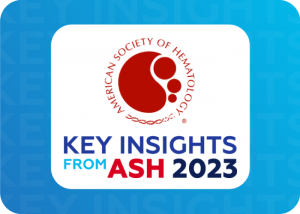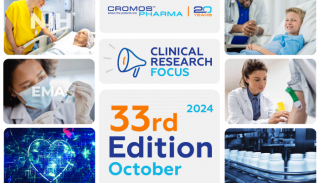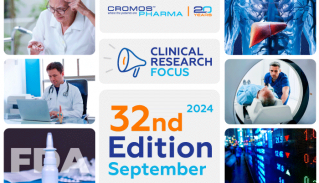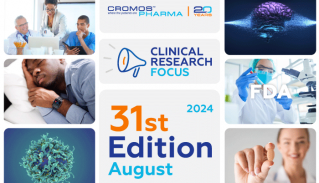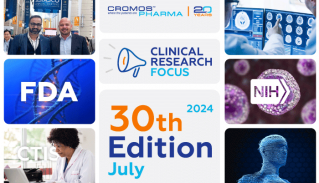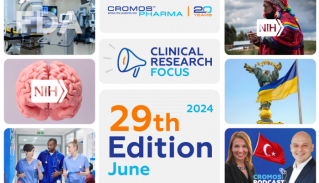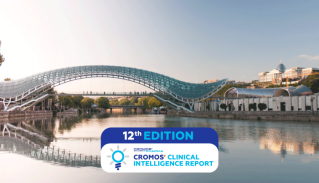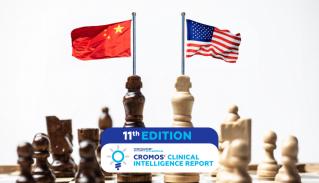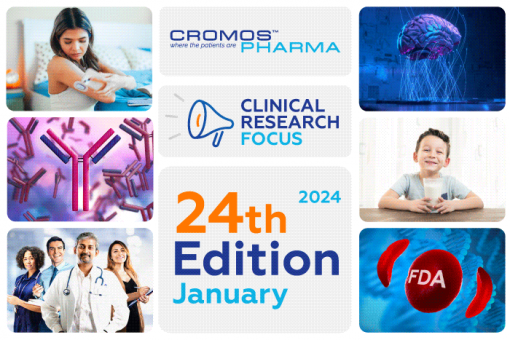
Clinical Research Focus. 24th Edition
Key Highlights in Clinical Research and Healthcare for 2023
As we bid farewell to 2023, a significant year in clinical research, we reflect on the transformative strides and pivotal trends that have shaped the landscape of medical research. This article explores some of the significant developments that have unfolded, bringing fresh insights and innovations to the biotech and pharma community.
Please follow the link to learn more.
Exploring Groundbreaking Advances: Key Insights from ASH 2023
The American Society of Hematology (ASH) 2023 conference, a cornerstone event in the field, has lived up to expectations by unveiling a multitude of groundbreaking developments. It has once again proven to be an extraordinary platform, revealing an abundance of discoveries and advancements poised to redefine the landscape of hematological research and patient care.
Please follow the link to learn more.
AI in Focus: EMA and HMAs’ Pioneering Workplan Shapes the Future of Medicines Regulation
The European Medicines Agency and Heads of Medicines Agencies (HMAs) have unveiled a collaborative AI workplan for the period up to 2028. This strategic initiative, developed under the joint HMA-EMA Big Data Steering Group, aims to harness the advantages of AI in medicines regulation while effectively managing associated risks.
Please follow the link to learn more.
Monoclonal Antibody Reduces Allergic Reactions to Varied Foods in NIH Trial
A monoclonal antibody omalizumab, approved for non-food allergy indications, has shown promise in reducing allergic reactions to multiple common foods in children and adolescents, according to an interim analysis of an advanced clinical trial sponsored by the National Institute of Allergy and Infectious Diseases (NIAID). The study revealed that participants receiving omalizumab injections could tolerate higher doses of peanut, egg, milk, and cashew without allergic reactions compared to those receiving placebo injections.
Please follow the link to learn more.
FDA Greenlights Groundbreaking Gene Therapies for Sickle Cell Disease
The FDA has given the nod to two pioneering treatments, Casgevy and Lyfgenia, marking a significant milestone as the first cell-based gene therapies for sickle cell disease (SCD) in patients aged 12 and older. Notably, Casgevy stands out as the first FDA-approved treatment employing a novel genome editing technology, CRISPR/Cas9, marking a major leap forward in gene therapy.
Please follow the link to learn more.
Advancements in Clinical Antibodies: Polyvalency as a Pivotal Emerging Trend
The advancement of medicine has benefited from the continuous evolution of monoclonal antibody (mAb) technology. Early mAbs have shown exceptional efficacy in tackling significant challenges posed by autoimmune, inflammatory, neoplastic, infectious, and cardiovascular diseases. The current trajectory of mAb research is concentrated on crafting next-generation antibodies, with a focus on bolstering potency, ensuring safety, and uncovering novel characteristics.
At present, the global landscape boasts nearly 1200 antibody drug candidates progressing through clinical trials, with approximately 175 either under regulatory review or already granted approval. Despite these significant strides, it is crucial to acknowledge that mAb-based therapies still confront certain limitations, necessitating ongoing refinement efforts.
Please follow the link to learn more.
NICE Advocates Wearable Tech for Type 1 Diabetes Management
The National Institute for Health and Care Excellence (NICE) recommends the widespread adoption of life-changing wearable technology for individuals with type 1 diabetes. The proposed hybrid closed loop systems, integrating continuous glucose monitoring sensors with body-worn insulin pumps, offer an automated approach to insulin delivery, maintaining blood glucose levels within a healthy range. This innovation eliminates the need for frequent finger prick testing and self-injections, enhancing the overall effectiveness of diabetes care, as demonstrated by clinical trials and real-world evidence.
Please follow the link to learn more.

